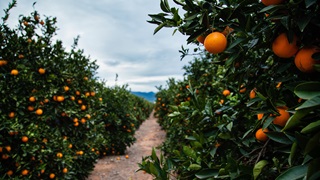
Publication
Canadian Food Inspection Agency efforts to streamline food supply chain
As Canadians continue to self-isolate and eat more meals at home, demands on Canada’s grocery stores and food manufacturers have dramatically increased.


Global | Publication | October 2020
The whole of the global food and agribusiness value chain is under more pressure than ever before due to increased attention on the environmental and resource impacts of supply chains and demand for sustainable production. This is leading to changes in supply chains at an unprecedented speed. Agribusiness supply chains are complex and multi-faceted, including various components related to supply, production, post-harvest, processing, distribution and includes linkages in-between – truly “farm-to-fork”.
To feed the ever-growing global population, which is estimated to be nine billion people by 2050, in a sustainable and resource efficient manner will require new and better ways to supply the world’s food. Global food supply chains will need to adapt.
Our food law team explores the latest trends and developments in food supply chains. The articles in this section cover a wide range of food products and supply chain processes and steps, exploring technology shifts and emerging best practices.

Publication
As Canadians continue to self-isolate and eat more meals at home, demands on Canada’s grocery stores and food manufacturers have dramatically increased.

Publication
Prime Minister Trudeau recently announced new measures to assist agribusinesses, $252 million in federal funding and an increase of $200 million in borrowing capacity to support agribusinesses.

Publication
Canadian producers of a wide range of agriculture products have been preparing for, and in some cases, bracing for change when the Canada-United States-Mexico Agreement (CUSMA) comes into effect on July 1st of this year.

Publication
The United States Department of Health and Human Services (HHS), through its Office for Civil Rights (OCR), issued a proposed rule to improve data protection measures in the healthcare sector.

Publication
Regulated businesses have experienced marked uncertainty since the United States Supreme Court upended the Chevron doctrine in Loper Bright Enterprises v. Raimondo on June 28, 2024.

Publication
On February 1, US President Donald Trump signed three executive orders which impose tariffs on Canada, China, and Mexico based on declared national emergencies associated with purported illegal immigration and fentanyl imports from each country.
Subscribe and stay up to date with the latest legal news, information and events . . .
© Norton Rose Fulbright US LLP 2025